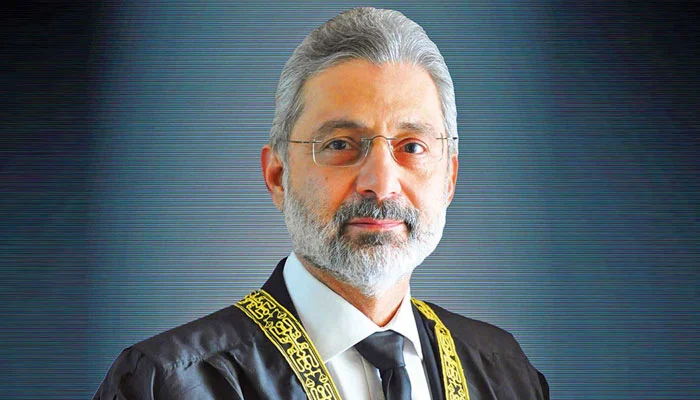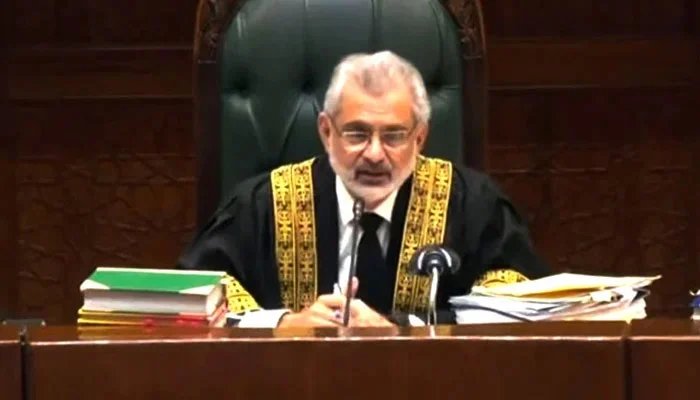Chief Justice Faez Isa has penned a responsive letter to Justice Ejaz ul Hassan of the Supreme Court, extending an invitation for open communication and dialogue. The Chief Justice emphasized that his doors are always open for all colleagues, and he is readily available through both intercom and phone. In the letter, he expressed a willingness to address any concerns or issues promptly.
The letter was prompted by a missive from Justice Ejaz ul Hassan, and in his response, Chief Justice Isa stated that he had made efforts to contact Justice Ejaz through intercom and phone upon receiving the letter. However, the Chief Justice pointed out that there was no response, neither through call nor for a meeting.
Chief Justice Isa clarified that he had also conveyed his willingness to communicate during a recent visit by Justice Ejaz to Lahore on Friday afternoon. He noted that despite his efforts to establish contact and extend an invitation for discussion, no response had been received from Justice Ejaz.
Furthermore, Chief Justice Isa shed light on the workload and responsibilities of the judges, highlighting that they are entitled to a six-day workweek instead of the mentioned four days. He emphasized the importance of fulfilling judicial duties and asserted that the primary responsibility of a judge is to carry out the functions of the court.
The Chief Justice’s letter underscores the significance of transparent communication and cooperation within the judiciary. It reflects a commitment to resolving any differences or concerns through open dialogue and emphasizes the shared responsibility of judges in fulfilling their crucial role in the dispensation of justice.
In the broader context, this exchange of letters sheds light on the internal dynamics of the Supreme Court and the importance of effective communication among justices. The willingness of Chief Justice Isa to address concerns and engage in dialogue demonstrates a commitment to maintaining a harmonious and functional judicial environment.
As the judiciary plays a pivotal role in upholding the rule of law, these communications are a testament to the commitment of the judiciary in Pakistan to ensuring effective and transparent governance. The hope is that such exchanges will contribute to a cooperative and efficient legal system, ultimately benefiting the citizens and the broader judicial process.



